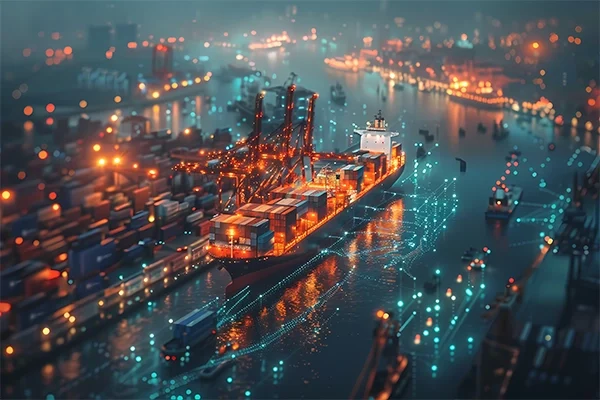The shipping industry is undergoing a profound transformation that will shape the coming decades. Those of you who work every day in contact with ships, shipyards, and ports know this well: competitiveness no longer depends solely on the ability to transport goods, but on doing so efficiently, safely, and with respect for the environment. The future of the sea lies in adapting to new technologies, more stringent regulations, and an increasingly dynamic global market.
The evolution of shipbuilding
Shipyards are undergoing historic change. Today, lighter and stronger materials, computer-aided design techniques, and more sustainable production processes are being used. You will see that it is no longer just a question of building bigger ships, but of designing smarter vessels that consume less energy and adapt to the demands of modern logistics.
The trend towards modular ships, which allow different systems to be integrated flexibly, opens up a range of possibilities for the industry and for suppliers who are part of the value chain.
The digitization of maritime operations
Digitization is not a luxury, it is a necessity. You experience it firsthand: from route control to document management, digital systems have reduced operating times and increased safety.
State-of-the-art ships include integrated platforms that allow all information to be centralized, from cargo to fuel consumption. This digitized management improves decision-making and facilitates adaptation to new international regulations.
Environmental challenges and new regulations
Compliance with environmental regulations has become a fundamental issue. You will see that international organizations, such as the International Maritime Organization (IMO), are demanding drastic reductions in pollutant emissions.
This is driving research into alternative fuels, electric motors, and cleaner propulsion technologies. Companies that manage to adapt quickly will not only comply with the law but also gain a competitive advantage in a global market that increasingly values sustainability.
Smart ports and their role in competitiveness
Ports are evolving from simple loading and unloading points to become truly smart logistics hubs. Thanks to automation, the Internet of Things (IoT), and the use of real-time data, modern ports enable faster and safer operations.
As part of the sector, you know that an efficient port not only benefits shipping companies, but also local suppliers, who find new business opportunities in this modernization.
The value of collaboration between companies
The shipping sector functions as a large interconnected network: shipping companies, shipyards, supply providers, port authorities, and regulatory bodies work together to keep international trade flowing smoothly.
Collaboration is key. You will see that sharing knowledge, committing to joint innovation, and establishing strategic agreements allows you not only to survive in a competitive market, but also to grow and lead.
Conclusion
The shipping industry faces a future full of challenges, but also great opportunities. You are an essential part of this process and have the ability to drive change towards a more digital, sustainable, and connected industry.
The sea will continue to be the great highway of world trade. And those of you who know how to anticipate trends will be in the best position to lead this historic transformation.

